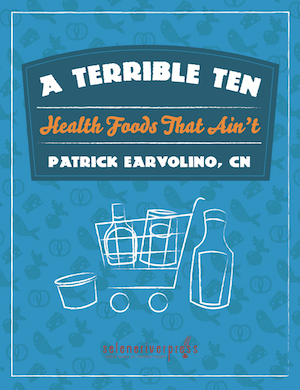Our bodies are amazing. Each part serves a specific purpose, but they also work together to give us signals when something isn’t quite right. Since February is all about the heart, here are some surprising things the rest of your body can tell you about your heart——and what you can do to diminish your risk of poor heart health.
Let’s start at the top and work our way down, shall we?
Keep Gum Disease at Bay
Your mouth tells you all sorts of things about your overall health, including how your heart is doing. If you fall victim to gum disease, it’s essential to get it under control—and not just for the sake of your teeth and gums. Studies have shown that the same bacteria that cause gum disease can make its way into your bloodstream and elevate your C-reactive protein (a marker for inflammation in the blood vessels). This inflammation can increase your risk of suffering a heart attack or stroke. Good oral hygiene means brushing and flossing on a daily basis.
Keep Your Midsection Trim
Being overweight, in general, takes a toll on your well-being, but extra weight in your midsection is especially troublesome. Belly fat not only makes us feel self-conscious about our appearance, but it can also throw up red flags about our likelihood of developing heart disease, among other ailments.
According to Harvard Medical School, fat that accumulates in the belly surrounds your organs. This puts a strain on them and interferes with how they work. One simple test to help you see if you’re at risk is to measure your waist circumference. For women, you want that measurement to be 35 inches or less. Men should shoot for no more than 40 inches.
If belly fat is something you struggle with, I recommend Maria Atwood’s blog post “Belly Fat—Simplified!” She discusses the causes of belly fat and offers some strategies for combatting it. Among her suggestions is to faithfully reduce stress, develop a sensible meal plan, and work to rev up your metabolism. These are all natural ways to help make the necessary changes. Atwood also mentions a few Standard Process and MediHerb supplements that can give your body a bit more support. You owe it to your self-health education to give Maria’s post a read.
Keep an Eye on Your Extremities
Feeling numbness in your fingers and toes on a regular basis is not normal. Sure, I occasionally experience a tingly sensation in a hand or foot if I haven’t been to the chiropractor in awhile. However, it stops once I go in for an adjustment and everything is back in its rightful place. This article from EverydayHealth.com reminds us that consistent numbness could indicate some interference with blood flow to those areas of your body. Don’t ignore it. Get it checked out.
Interestingly enough, if you notice that those little hairs no longer grow on your toes, it can be another indication of poor blood flow to your extremities.
The nuisances of our bodies are really quite remarkable. Be sure to pay attention to the surprising things the rest of your body is telling you about your heart to avoid any further surprises.
Photo from iStock/evgenyatamanenko
Related Topics
cardiovascular health | holistic medicine | whole food supplements
 Get self-health education, nutrition resources, and a FREE copy of A Terrible Ten: Health Foods That Ain't ebook.
Get self-health education, nutrition resources, and a FREE copy of A Terrible Ten: Health Foods That Ain't ebook.

